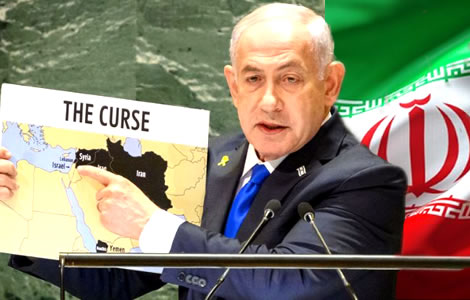The U.S. and G7 allies are urging Israel to avoid large-scale strikes on Iran’s oil or nuclear sites, fearing escalation into a broader regional conflict. Israel, after successful actions against Hezbollah, is considering its next move.
The United States is trying to temper Israeli plans against Iran. This comes in the wake of a successful week for the Israeli Defense Forces against Hezbollah in Lebanon. Officials in Washington, D.C. fear Israel may target either Iran’s oil fields or its nuclear sites. In turn, this may trigger a wider regional conflict, unleashing built-up tension and hostility toward Israel in the Middle East. On the other hand, Israel sees clearly that Iran is the driving force behind Hamas and Hezbollah, its proxy militias in both Gaza and Lebanon.

The United States and its allies in the G7 are working to limit Israel’s response to Iran’s recent ballistic missile attack. They hope to prevent an escalation that could destabilise the entire region.
Washington has affirmed its support for Israel’s right to respond militarily but emphasises the need for proportionality. Frequent consultations with Israeli officials are ongoing as they plan their course of action.
Coordination Between US, G7, and Israel
President Joe Biden convened a call with other G7 leaders on Wednesday to discuss the sanctions against Iran and to advise Israel on its response. He reiterated Israel’s right to defend itself but emphasised restraint. “All seven of us agree that they have a right to respond, but they should respond in proportion,” Biden told reporters after the call.
Despite the coordinated approach, U.S. officials acknowledge their influence on Israel may be limited. Israel is weighing several response options, including strikes on missile launchers or oil infrastructure. While some Israeli officials have called for attacks on Iran’s nuclear facilities, Biden has opposed such an action, and it is not currently being considered.
Western officials are urging Israel to focus on military targets, in hopes of limiting further escalation. Nonetheless, Washington recognizes Israel’s increasing confidence after its recent assassination of key Iran-backed Hezbollah leaders, including Hassan Nasrallah.
Iran’s Missile Attack and Israel’s Air Defences
Iran’s missile attack on Tuesday followed the assassination of Hezbollah leader Nasrallah last week. It involved a larger number of ballistic missiles than an earlier Iranian attack in April, though only a few missiles penetrated Israel’s air defence systems. The attack marks a significant increase in hostilities, putting the region at risk of further conflict.
Israel makes ominous moves as it now appears to be gearing up for a strategic ground offensive into Lebanon
The U.S. and its allies, while supporting Israel’s right to retaliate, aim to prevent a spiral of violence. Kurt Campbell, the U.S. Deputy Secretary of State, noted the fragile situation in the region. “The region is really balancing on a knife’s edge, and there are real concerns about an even broader escalation, or a continuing one,” he said during a virtual event at the Carnegie Endowment for International Peace.
Israel’s Strategic Calculations
Western officials are aware that Israel may be willing to endure some military and political losses if it secures a strategic victory over Iran. Israel’s success in weakening Hezbollah’s leadership has emboldened its leadership. In short, it has made them more confident in military engagements with Iran.
U.S. State Department spokesperson Matt Miller acknowledged Israel’s sovereignty and decision-making autonomy. “They’re a sovereign country, they make their own decisions,” Miller said. While the U.S. advises Israel on what it believes to be in its interest and the region’s interest, the ultimate decision lies with the Israeli government.
The Dangers of Escalation
Tuesday’s missile strikes have heightened tensions. U.S. National Security Adviser Jake Sullivan warned that Iran would face “severe consequences” for the attacks. However, the U.S. views Iran’s missile strikes as largely ineffective due to Israel’s air defence systems. Sullivan added that the U.S. would work with Israel to ensure any response remains measured.
Despite granting Israel the go-ahead for military retaliation, U.S. analysts have warned that the response should not provoke further escalation by Iran. Dana Stroul, the former top Pentagon official for the Middle East, emphasised that the Biden administration is committed to de-escalation. “The administration wants to prevent an all-out regional war that could cause massive collateral damage and civilian casualties,” she said.
Potential Risks of Israeli Action
There are concerns that Israel’s retaliation, particularly if it targets Iranian oilfields, could trigger a broader conflict. Jonathan Panikoff, a former senior intelligence official, noted that U.S. officials are likely concerned about Iran striking back against oilfields belonging to U.S. companies or their Gulf allies.
Such a response could have global economic repercussions, especially given the sensitivity of oil prices. A spike in oil prices could also affect the upcoming U.S. presidential election, adding another layer of complexity to the situation.
Direct strikes on Iran’s nuclear facilities are considered the most dangerous option. A senior official warned that Tehran would view such an attack as a direct threat to the regime’s stability. “Tehran is likely to view a strike against its nuclear programme as a fundamental attack on the regime itself,” Panikoff said. He added that such a move could push all parties into a dangerous cycle of escalation.
Indeed, in a recent public statement, Israeli Prime Minister Benjamin Netanyahu sent a message to anti-regime forces within Iran. Certainly, he told them that the days of the Iranian theocratic regime were numbered.
Join the Thai News forum, follow Thai Examiner on Facebook here
Receive all our stories as they come out on Telegram here
Follow Thai Examiner here
Further reading:
Sheikh Hassan Nasrallah dead in another coup for Israel defence forces in their war on Hezbollah
Thai hostages held by Hamas used to leverage influence over Israel as it prepares to invade Gaza
Israel to pay ฿35k per month to wives of Thai workers killed in Hamas raid and child support
Rogue Israeli tourist is taken into custody by Immigration Bureau police prior to deportation
On the run Israeli tourist tracked down to Ko Samui, surrenders to authorities, taken to hospital
Thailand votes on the right side of history in UN deploring Russian military action in Ukraine


















